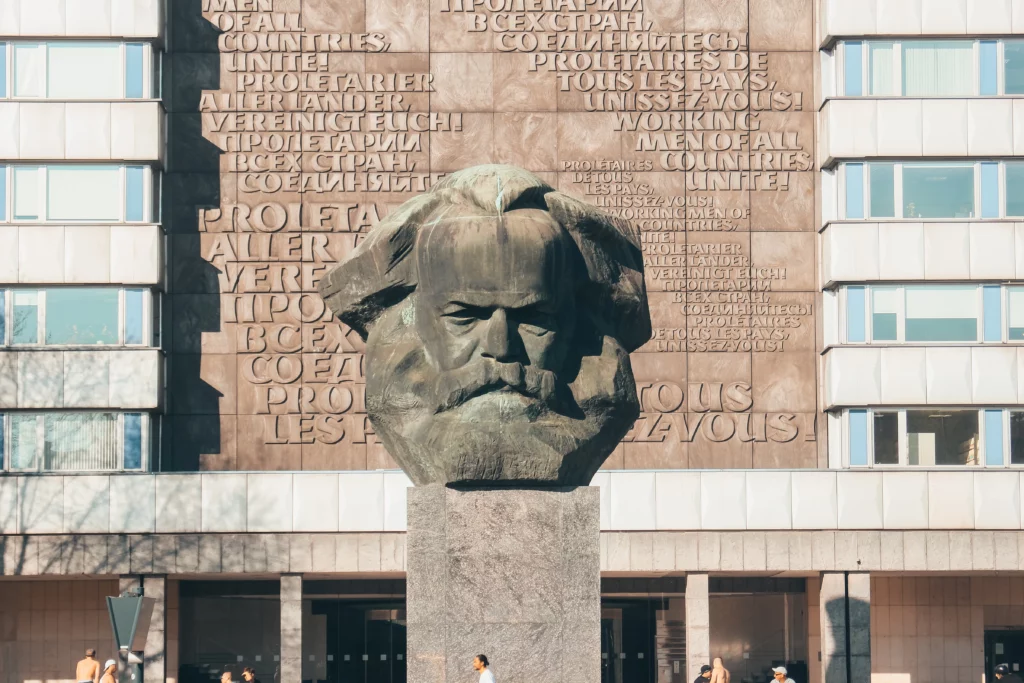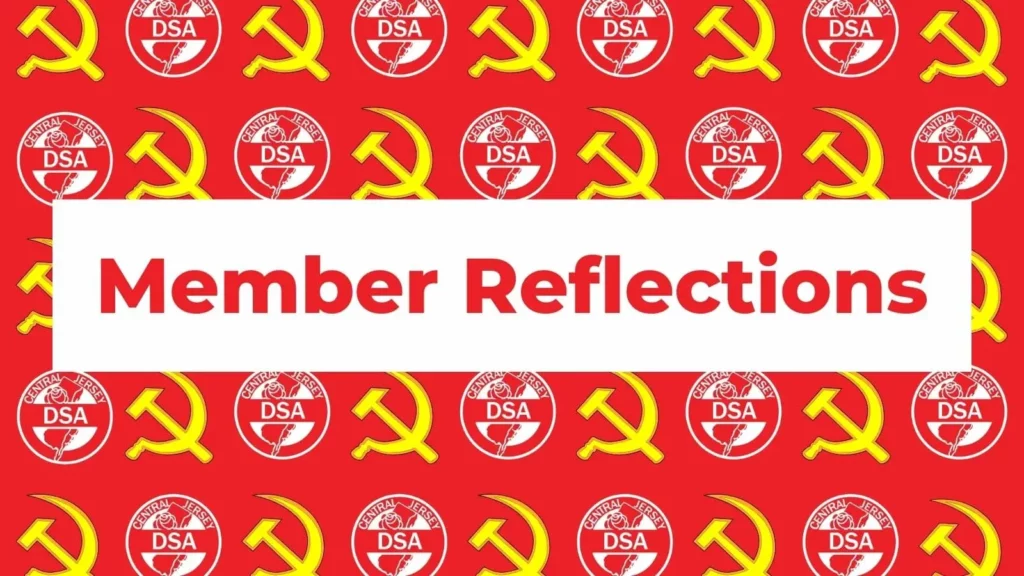by Sudip Bhattacharya
According to recent surveys, an increasing number of Americans are turning against capitalism and leaning more toward alternatives such as socialism. This would make sense given the growing economic challenges that many are facing, the fact that more and more of us cannot afford what we need to live, such as rent and food, especially during a pandemic, regardless of how many hours we put in at work. In fact, our wages have been stagnant for the past several decades while our hours at work have continued to go up, while costs of living has skyrocketed.
Still, with this renewed interest in socialism and growing discontent among people toward capitalism, toward the “free market”, it is incumbent upon us to understand some basic ideas about what capitalism is and what socialism can be.
CAPITALISM 101
Capitalism is a political system of governance that emerged first in mainly Western Europe during the transition away from feudalism. The capitalist class, or “bourgeoisie”, wanted to increase their hold on the rest of society, in order to make more profit, which is one of the main priorities under capitalism. The bourgeoise rebelled against the feudal order, and in some cases, achieved some major compromises with the ruling feudal elites, and over time, helped develop societies across Europe that turned public land into private territories for certain people to own and for others to rent, and which forced many peasants into working for a wage in major factories.
Although feudalism was a terrible system that was also oppressive, it at least allowed for peasants to have some land that they could grow crops on and rely on for their survival. Under capitalism, such lands were taken away and the only way for peasants to have what they need to live, such as a roof over their hands, they would have to work for in a factory or work for wages as tenant farmers.
In the end, this type of political system, which prioritizes profit over human need and aspirations of the majority if people, and deifies private property, was spread across the globe through European expansion and imperialism. Major European companies, backed by European countries, would shape societies in Asia, Africa and what would be called the Americas in their image, as societies in which profit is king, and people have to work to survive.
Capitalism has of course, shifted and changed and evolved over the years. In the U.S. context, capitalism has morphed from relying on enslavement and extreme forms of violence to now, a system in which people work in companies like Walmart or Amazon, for very low wages. Their oppression has changed but the basic tenets of capitalism remain, which are profit over need and private property as a symbol of liberty and freedom.
Under modern day capitalism, there is also a reliance on forms of extreme violence as well as other forms of coercion. For instance, agricultural workers in the U.S., many of whom are non-white, are treated as collateral, and detained in the most horrid conditions. Of course, U.S backed companies also depend on extremely exploited labor in Asia and across Africa.
At the same time, capitalism produces constituencies, or groups of people, whose interests align with capital somewhat. This includes, of course, the capitalists themselves, such as business owners, large and small, and segments of the working classes and the middle classes, based on how they’re racialized or gendered. After all, for many white middle class people, for the past several decades, they have benefited from the looting of resources from parts of Asia, Africa and Latin America, since those resources can lead to more stuff to buy or to actual jobs, such as factories and other firms being built that could turn that raw material into products and therefore, require U.S. labor.
Overall, though, capitalism diminishes all working people. This is because even when capitalism is reformed and regulated, like we saw during the New Deal, it will always have an employer earning the profits, and the worker having to work for longer hours in order for such profits to emerge. As Marx understood generations ago, the way that an employer makes money is by paying low wages and paying for only a few hours of labor. This is called “surplus value” and so, even under reformed capitalism, exploitation will always exist.
SOCIALISM 101
According to Marx and other scholars, such as Claudia Jones, Angela Davis, Manning Marable, among others, capitalism will always produce a class of people, working people, whose interests will always be secondary to the interests of business owners and their allies. Unlike a progressive or a liberal who may lean more Left even, Marxist socialists understand that capitalism must be abolished and replaced, or otherwise, it will always produce a set of people whose labor will be exploited by another smaller group of people called the capitalists.
A socialist society instead would lead to working people taking over the means of production, like the major businesses, Amazon and Walmart for example, and working people overall will determine major economic policies moving forward. Furthermore, basic needs will be fulfilled, which would entail universal housing, healthcare, food, transportation, and other amenities that are important for people to live and joyous lives.
Most of all, socialism seeks to create a classless society, in that no group of people will need another group of people to be exploited.
There are some complicated discussions about other aspects of socialism, which are important, such as whether or not we need a “state” in a socialist society, or as Lenin once argued, it would “wither away”. I believe we will need some form of government to manage future conflicts. I do not think conflicts between people will go away nor that people will behave in ways that are good for others. I think people are capable of great good and great harm and that government programs, and education, can cultivate the good.
Furthermore, there are issues, such as protecting certain political rights, like that of trans communities, against majority prejudices, or issues like climate change, that will always require some forms of coordination and protection that a socialist government could provide.
Still, these are discussion that are up for debate and should always be up for debate among socialists moving ahead.
POWER 101
Regardless of our discussions over the “state”, what socialists agree on usually is we need power to shape politics and society. Without power, our politics will remain an aesthetic. Without winning and accruing power, our lives, our communities will remain oppressed and fighting to survive.
As socialists, we gain power by organizing ourselves as working people. As much as capitalism dehumanizes us and causes most of us extreme misery, it also relies on our labor. After all, without working people, capitalists cannot turn a profit at the incredibly rates that they desire.
As we witnessed during the pandemic, even as companies have shifted their investments into complicated financial schemes on Wall Street, capitalists need “essential” workers, such as nurses, nursing assistants, teachers, supermarket employees, warehouse workers, delivery people, for society to have some level of “stability”. It’s much harder to turn a profit when society is in complete freefall, one would guess.
Of course, the economy has changed, with more people being chronically unemployed, and others getting by through several part-time jobs. Still, organizing as working people means organizing the power we need to get our demands heard and enacted even, whether it is higher wages, or the defunding of police, or the creation of programs like universal housing and healthcare.
The goal is to organize ourselves as working people, across race, across gender identity, for things that working people need short-term as well as for a longer-term agenda of ending capitalism and creating a society in which peoples’ racialization or how people are gendered, or what jobs they have, doesn’t impede their level of happiness, and ability to lead a more fulfilling life.



